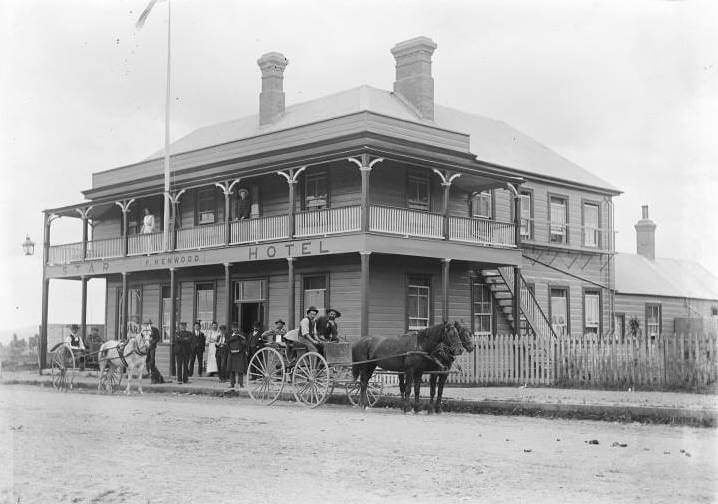
Star Hotel, Kihikihi
A poisoned arrow struck the neck of Alexander Keith and was swiftly removed then cauterised with a hot iron by a ship’s mate. The arrow was fired by a South Sea’s Islander and was yet another adventure on the oceans during the mid-1800s for Alexander. But the effects of this episode lingered – the iron was too hot and the cauterisation would give him trouble for years to come causing him to frequently complain of neck pain.
By November 1887 Alexander’s life had quietened down somewhat. He was living at Kihikihi, staying at the Star Hotel which he had considered his home for the previous 18 months. Apart from the neck pain, a rock had recently fallen on his back while he was working on the Poro-O-Tarao railway tunnel, but it was his stomach that was bothering him the most.
Around 1pm on a Friday he was taken ill and William Bond, the Star’s landlord, sent for the doctor, who was not at home. About 4.30 Alexander asked William to give him 30 drops of chlorodyne, a pain reliever, which he did not keep down for more than ten minutes. William and his wife attended to Alexander as best they could. Around 6pm, William, alarmed at Alexander’s deterioration, asked him if he had taken anything to which he vaguely replied it was the pain in his stomach that was killing him. Alexander died shortly afterwards.
At the inquest Dr Pairman said that he was away from home when called to the Star Hotel. When he got to Kihikihi it was too late. The death was of a very sudden character. It appeared to have resulted from bowel inflammation. The doctor considered chlorodyne was the proper medicine to administer in this case and 30 drops was not too much. There were some cases of inflammation in which the medicine was useless, and death would ensue in three or four hours, as in this case. The jury returned a verdict of death from natural causes.
Alexander Elphinstone Keith, 37, was said to be highly connected in Scotland and in Leicestershire. He was formerly an officer in the Imperial Army, holding a commission in H M Life Guards. After a stint cruising the oceans, he came to New Zealand where he held an important position in the government’s Civil Service.
So what then was he doing labouring in a railway tunnel in the back blocks at the time of his death?
Alexander Keith was likely a disgraced son – a remittance man, from Britain, supported by regular payments from home in the expectation that he would stay away. He arrived in Dunedin from Glasgow on an immigrant ship in 1879 when he was 28. He had travelled in steerage, the lowest category of passenger accommodation. In the Imperial Army he was only a gentlemen trooper or ranker – a soldier who was educated and born into privilege but who had somehow shamed himself. Once banished to New Zealand he went to Wellington where he worked as a clerk in a role of no great note.
He seems to have been a fantasist and his tales of daring and dicing with death across the seas had their roots in a darker reality. He boasted that he cruised among the South Sea Islands engaged in the labour traffic – a reference to a practice called ‘black birding’ – the kidnapping of indigenous people from islands in the Pacific Ocean to be taken to Australia and sometimes New Zealand to work as slaves on plantations, cattle stations or in flax mills. For a man who evidently had such a vivid life, in death he left faint traces. Alexander is likely buried at Kihikihi cemetery, record details document his birth and death dates as unknown and his entire name is noted simply as ‘Keith’.









